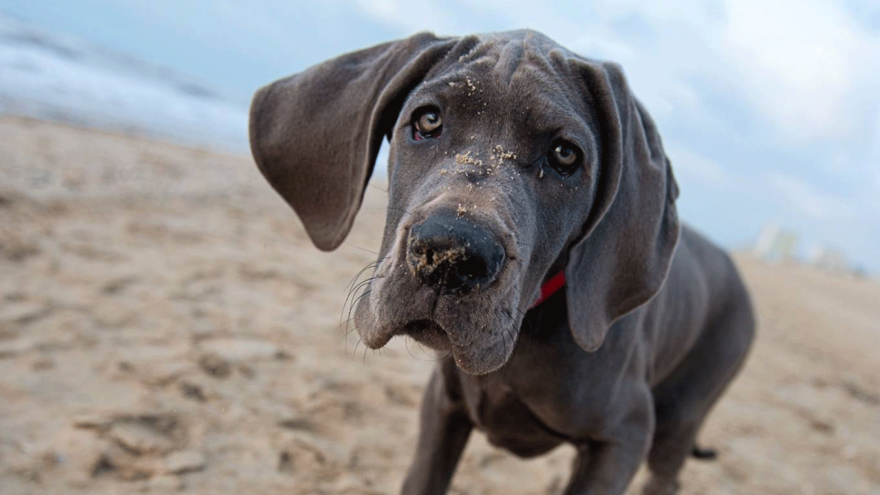The last years and months we have with our aging dogs are by far the most bittersweet times in a dog lovers’ life. The older they get the better they get, as if we couldn’t love them more than we already do. The senior stage may last years. If handled properly this can be a great stage of life for your dog as well as you. Older (senior) dogs need less constant attention than puppies and young dogs. You will notice that they sleep more, eat less, gain weight and develop dental problems. Not so different from an aging human however, while human adult aging is gradual in our dogs it all happens a lot faster and way too soon. In addition to the obvious signs of aging they will also become more susceptible to dehydration, sensitive to changes in the weather, will suffer hearing and or vision loss and will need help getting up and down the stairs and into the car.
Aging affects the brain too. Canine Cognitive Dysfunction Syndrome (CDS) is similar to Alzheimer’s disease in humans. Dogs with CDS may forget their obedience skills, begin having accidents in the house, or no longer recognize members of the family. They may even forget their name. My 11yr old bulldog Rosalita is starting to show signs of this syndrome growling unnecessarily at family members. Calming, soothing words and actions seem to redirect her. On a lighter note she is still the comedian of the family full of love and affection.
It’s not uncommon for separation anxiety to set in, even in dogs that were independent in their youth. As they get older their senses will wane and your dog will rely on you more and more for information about his surroundings–and he may become panicked in your absence. My ten yr old Great Dane Clarence always has had separation anxiety but in his senior years it has gotten to the point where we cannot leave him with anyone but us. His anxiety makes him panic to the point of becoming physically ill. What I do when we need to travel without him is to make sure someone comes to the house instead of putting him a different environment. A lot of my clients feel bad leaving their dogs alone without human interaction however some dogs left alone in their own environment do better, especially older dogs.
For a variety of reasons, including better nutrition, advances in veterinary care and a more health conscious public, dogs are living longer lives. For older dogs there are three main factors that will greatly influence longevity.
- Diet and Weight – monitor how much your dog eats and keep their weight down. Ask your vet for recommendations for a proper diet along with supplements.
- Exercise – Your dog needs to be active everyday. Be realistic about what they can do but even a little bit will keep the weight down and muscles and joints supple.
- Regular Veterinary care – See your vet at least once a year. Older dogs may require blood work, dental care and diagnostic imaging; early diagnosis is key to successful treatment.
Senior dogs need less walking. They know the routine of the house and are quite content to laze around and get their ears scratched. Extra love and kisses come with older dogs.
“Old dogs, like old shoes, are comfortable. They might be a bit out of shape and a little worn around the edges, but they fit well.” -Bonnie Wilcox

